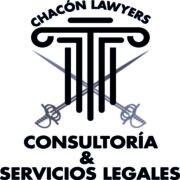Best Arrests & Searches Lawyers in Bogota
Share your needs with us, get contacted by law firms.
Free. Takes 2 min.
List of the best lawyers in Bogota, Colombia
About Arrests & Searches Law in Bogota, Colombia
Arrests and searches are critical components of criminal procedure law in Bogota, Colombia. These processes are governed by the Colombian Constitution and the Código de Procedimiento Penal (Criminal Procedure Code). The law establishes how and when police authorities can detain individuals, conduct searches of persons, vehicles, or property, and what rights individuals have before, during, and after such events. The main goal is to balance crime prevention and investigation with the protection of fundamental human rights such as liberty, privacy, and due process.
Why You May Need a Lawyer
People may require a lawyer during arrests or searches for various reasons. Some common situations include being detained by law enforcement for suspected involvement in a crime, having your home or vehicle searched, or believing that the police violated your rights during these procedures. Legal representation can ensure that your rights are upheld, provide guidance during police questioning, assist in obtaining your release, and help challenge any evidence obtained unlawfully. Lawyers are also vital in filing complaints or defending you if procedures were improperly handled.
Local Laws Overview
In Bogota, the legal framework for arrests and searches is primarily defined by the Colombian Constitution and the Criminal Procedure Code. Key aspects include:
- Police must have a valid arrest warrant issued by a judge to detain someone, except in cases of flagrancia (caught in the act of committing a crime).
- Searches generally require a judicial order, although there are exceptions for urgent situations where evidence could be destroyed or criminal acts are ongoing.
- Individuals have the right to be informed of the reasons for their arrest or the purpose of a search.
- Everyone detained must have access to legal counsel and the right to remain silent.
- Any evidence obtained in violation of legal procedures may be considered inadmissible in court.
- Children or vulnerable people must have special protections during arrests or searches.
- Police misconduct or abuse of authority during these processes can be reported and investigated.
Frequently Asked Questions
What should I do if I am being arrested in Bogota?
Remain calm, do not resist, and ask to be informed about the reasons for your arrest. Request to speak with a lawyer as soon as possible and do not answer questions without their presence.
Can the police search me or my property without a warrant?
Generally, a warrant is required, but there are exceptions if you are caught in the act of committing a crime, if there is imminent danger, or when evidence may be lost or destroyed.
What are my rights during an arrest?
You have the right to be treated with dignity, to know the reasons for your arrest, to remain silent, to contact a lawyer, and to have your family or a trusted person informed.
How long can I be held after being arrested?
You must be brought before a judge within 36 hours of your detention to determine if the arrest was legal and justified.
What happens if the police violate my rights during a search or arrest?
Any evidence obtained unlawfully may be excluded from court proceedings. You may also file a complaint against the officers involved.
Can I film or record the police during an arrest or search?
Yes, as long as you do not interfere with police operations. Recording can help protect your rights if the process is questioned later.
Do I have to let police enter my home?
Police need a judicial search warrant to enter your home, except in emergencies such as during the commission of a crime or if someone's safety is at risk.
What should I do if I believe my rights were violated?
Contact a lawyer immediately and consider making a complaint with the Prosecutor’s Office, the Defensoría del Pueblo, or the Police Internal Affairs division.
Does the law treat minors differently during arrests?
Yes, minors have special protections, including the mandatory presence of a guardian and legal counsel during any procedure.
Can evidence from an illegal search be used in court?
Generally, evidence obtained through illegal means cannot be admitted in court, thanks to constitutional guarantees and procedural law.
Additional Resources
If you need further information or assistance regarding arrests and searches in Bogota, you can reach out to the following entities:
- Defensoría del Pueblo (Ombudsman’s Office) - Provides protection of human rights and receives complaints about abuses.
- Fiscalía General de la Nación (Attorney General’s Office) - Responsible for criminal investigations and safeguarding due process.
- Procuraduría General de la Nación - Handles disciplinary issues involving public officials, including police misconduct.
- Colombian National Police Internal Affairs - Receives reports of abuse or improper conduct by police officers.
- Legal aid clinics at local universities - Offer free or low-cost legal advice for those who qualify.
Next Steps
If you or someone you know is facing an arrest or has been subject to a search in Bogota, it is important to seek legal assistance as soon as possible. Begin by contacting a criminal defense lawyer who is experienced in local law. If you cannot afford private counsel, ask for a public defender or reach out to legal aid organizations. Gather all information related to your case, including official documents, witness accounts, and any evidence that can support your position. Remember, you have rights during all stages of an arrest or search, and a qualified attorney can help protect those rights and guide you through the legal process.
Lawzana helps you find the best lawyers and law firms in Bogota through a curated and pre-screened list of qualified legal professionals. Our platform offers rankings and detailed profiles of attorneys and law firms, allowing you to compare based on practice areas, including Arrests & Searches, experience, and client feedback.
Each profile includes a description of the firm's areas of practice, client reviews, team members and partners, year of establishment, spoken languages, office locations, contact information, social media presence, and any published articles or resources. Most firms on our platform speak English and are experienced in both local and international legal matters.
Get a quote from top-rated law firms in Bogota, Colombia — quickly, securely, and without unnecessary hassle.
Disclaimer:
The information provided on this page is for general informational purposes only and does not constitute legal advice. While we strive to ensure the accuracy and relevance of the content, legal information may change over time, and interpretations of the law can vary. You should always consult with a qualified legal professional for advice specific to your situation.
We disclaim all liability for actions taken or not taken based on the content of this page. If you believe any information is incorrect or outdated, please contact us, and we will review and update it where appropriate.















